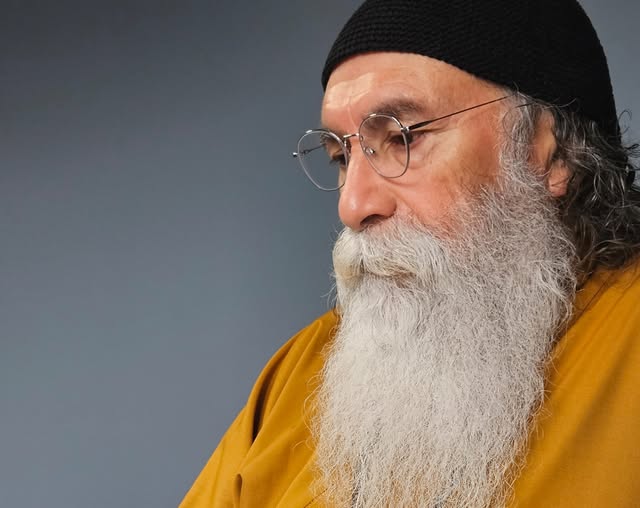The dignity of being oneself.
“I am not one to forbid anyone from considering themselves my disciple, just as I am not one to prevent others from rejecting me. I hold no titles, nor do I grant permissions or credentials. I neither approve nor disapprove. I do not name myself, defend myself, withdraw, or promote myself. I am where I am—without center, without edge—and whatever anyone does with my name, my words, or my image belongs to the world, not to me.
Some present themselves as disciples, with respect, affection, and devotion, spreading my books, building websites, sharing quotes, images, moments. Others, with the same fervor, claim that I am a fraud, a charlatan, or that what I write is empty. Some praise me, others condemn me. Some call me wise; others, an impostor. Some believe I am a blessing; others, that I am a problem. Meanwhile, I do not intervene.
What authority could I claim to stop someone who wants to consider themselves my follower? And what right would I have to silence someone who needs to position themselves as my detractor? Let each person navigate the relationship they need to build with me—whether it be one of reverence or repudiation—because both bonds, though opposite in appearance, are born of the same desire: to find a place in their own narrative. If by naming me someone manages to calm their search, whether by blessing or defaming me, who am I to interfere?
The books I wrote years ago no longer belong to me. They are not mine. They were written through me and moved on. Texts circulate, are quoted, distorted, glorified, or forgotten. And that’s okay. Let someone publish them, translate them, or hide them; let them print them or delete them from a website: none of that alters their essence or compromises mine. I don’t protect my work because it doesn’t belong to me. I never guarded a doctrine or cultivated an identity.
I see that some, with generosity, show me respect. Others, with passion, ridicule me. And in both cases, it doesn’t affect me at all. It’s not coldness, it’s freedom. It’s not indifference, it’s confidence. Let everyone seek happiness where they can. Those who find meaning in considering themselves my disciples, let them celebrate it responsibly. And those who find peace in criticizing me, let them embrace that peace with all the strength of their sincerity. Both are welcome to the mystery, both are part of this universal dance.
I do not defend myself because I am not at war with anyone, I have no enemies. I do not prevent what happens because I have not appointed myself arbiter of the future. I do not claim authority over the image that others project onto me, because I understood long ago that those images do not contain me, they do not reflect me. There is no true figure that can be sustained between praise and defamation. There is a point where it is no longer about being seen with justice or injustice. It is about not interfering with the way life is reflected in others.
Those who see a flame, come closer if you need to. Those who see smoke, move away if you prefer. I am neither the flame nor the smoke. I just remain silent, without imposing myself, without hiding. If the image you project of me serves as a refuge for one, hold on to it. If it serves as a mirror for another, look through it. And if it serves no one, let it dissolve.
I do not walk toward applause, nor do I flee from criticism. I do not need to be elevated or understood. I prefer that each person approach or distance themselves from a place of honesty. May gratitude not become obligation, and may judgment not become a chain. May everything flow with the innocence of that which no longer depends on being recognized.
In the end, it’s not about me. What happens around my name does not happen in me. What others see, admire, or attack is not who I am, it is what I reflect. And if that reflection helps them find themselves—even if it is through a misunderstanding—then let them use it. I bless you all equally, both those who come closer and those who move away. To those who are moved when they read me and to those who feel uncomfortable. To those who call me master and to those who consider me just another illusion.
Everyone is free to love or reject, to remember or ignore. All I ask is that you allow yourselves, at least for a moment, the freedom to walk without permission, without fear, and without spiritual obligations. Because in that moment, without knowing it, you may be closer to the heart of all this than in any course, any temple, or any slogan.
And if, on that walk, someone feels that my voice accompanies them, let them listen to it. And if it makes them uncomfortable, let them walk away. Both decisions come from the same place: the dignity of being oneself.
That is where teaching truly begins and ends.”
Prabhuji



Recent Comments